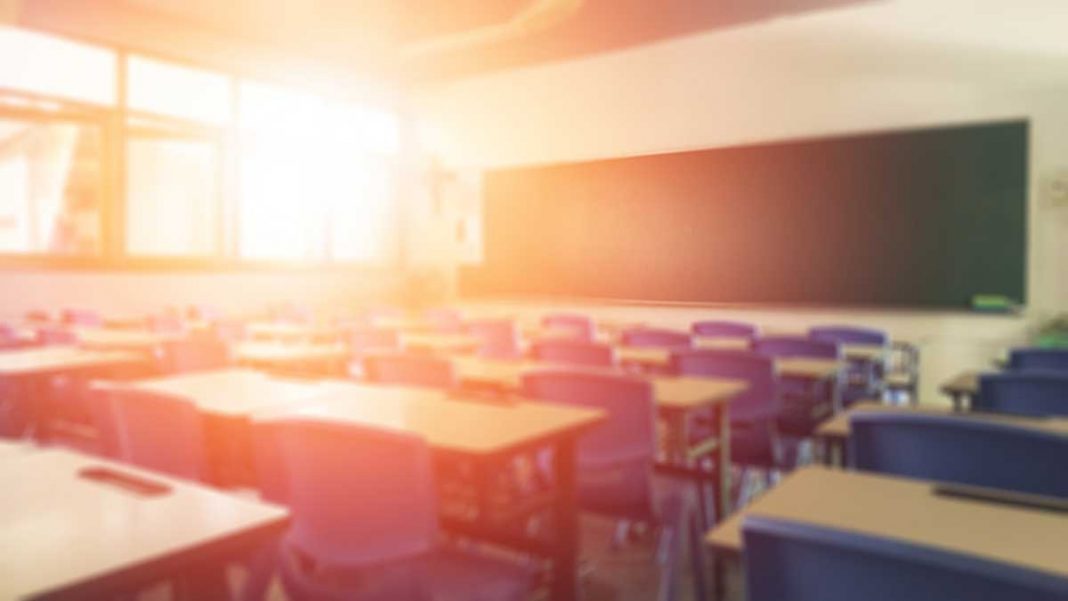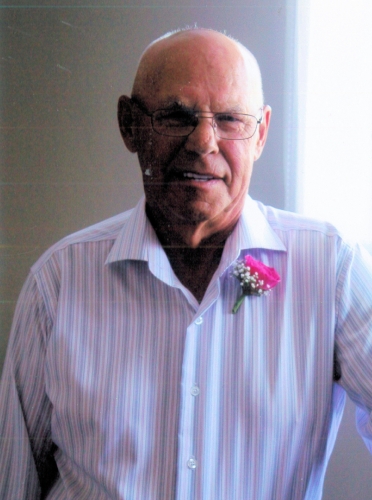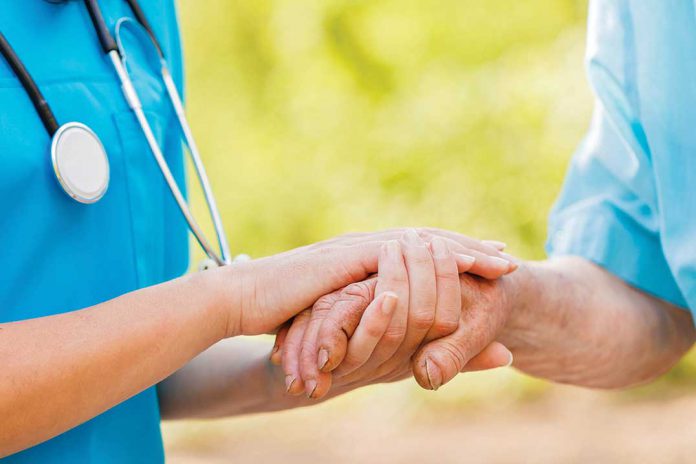EDITOR’S NOTE: The article below outlines the back to school plans of Rainbow District School Board, Wiikwemkoong Board of Education and Kenjgewin Teg. The Expositor reached out to Sheshegwaning First Nation’s St. Joseph Anishnabek School, which was not ready to discuss its back-to-school plan as yet, as well as Whitefish River First Nation’s Shawanosowe School, but did not hear back from a representative by press time Monday. Lakeview School’s plans were being presented to council Monday night (after the paper’s press deadline). It was hoped that, following board approval, parents will learn of those plans this week. Visit manitoulin.ca for updates to this story as they become available.
Rainbow District School Board
Rainbow District School Board (RDSB) announced its plan for a return to school last week. All parents and guardians must confirm with the school board by this Friday, August 21 whether their child/children will be attending school in person or online. This must be done online at rainbowschools.ca/parents/coronavirus/reopening/ and clicking on ‘Confirmation of Attendance in Rainbow Schools.’
Both elementary (Little Current Public School, Assiginack Public School, Central Manitoulin Public School and Charles C. McLean Public School) and secondary schools (Manitoulin Secondary School) will be open five days a week.
These are the conditions for reopening as set out by the RDSB:
Elementary schools
Those elementary school students who choose to attend school virtually will be connected to a distance learning teacher who will not be their regular classroom teacher.
Students will be in one cohort throughout the day, meaning they will be with the same group of children for all classes, as well as at recess and lunch. The childrens contacts will also be limited to approximately 50 people.
Students in Grades 4 through 8 will be required to wear masks indoors, including in hallways and during class and are encouraged to bring spare masks. Students in Kindergarten to Grade 3 will be encouraged, but not required, to wear masks in indoor spaces. (For those students in a Grade 3/4 split class, all students will be required to wear masks.)
Students will be required to remain at school for nutrition breaks, which will be scheduled to allow students to wash their hands before eating without creating congestion in the washrooms. Water fountains will be closed.
In shared outdoor spaces, physical distancing during recess will be maintained between cohorts and any other individuals outside of the cohort.
Manitoulin Secondary School
Manitoulin Secondary School (MSS) students can either attend school in person or connect to their class via livestreaming, taught by their regular classroom teachers.
MSS students will be given a different-than-normal timetable this year that is designed to limit their direct contacts to less than 100 students per week.
Students will take four credits/subjects in the first semester. In week one, students will have a 150-minute period one class (subject one) followed by lunch break and a 150-minute period two class (subject two each day). In week two, students will have a 150-minute period three class (subject three) followed by lunch and a 150-minute period four (subject four).
All high school students will be required to wear masks indoors.
Multiple lunch periods may be staggered to allow for physical distancing.
Parents and guardians are required to screen their children daily for any COVID-19 symptoms and keep them from home if they or anyone in the household is sick or has had close contact with anyone diagnosed with COVID-19. Students, teachers and school staff are also expected to self-screen for symptoms of COVID-19 each day before leaving home.
RDSB is also promising enhanced mental health supports during this unprecedented time. “Professional learning will have a strong focus on building social-emotional learning skills for students to become resilient, manage stress and nurture positive relationships,” the RDSB reopening guide states. “There will be intensive help for students who have been most affected by COVID-19.”
All RDSB schools will keep records of classes, seating charts, bus cohorts and daily visitors.
RDSB schools will be filled with wall signage and floor markings to help students maintain physical distance, as well as directional signage to signal one-way directions within the schools. For students, times to access and leave the school entries and exits may be staggered and students will be discouraged from congregating in the corridors.
Playgrounds and play structures will remain closed until further notice.
Cleaning and disinfecting will take place in all high-touch common areas including railings, door handles, washrooms, light switches and other surfaces throughout the school throughout the day. Schools will be cleaned and disinfected each evening.
There will be no access to lockers.
Wiikwemkoong Board of Education Elementary Schools
Wiikwemkoong Board of Education (WBE)’s COVID-19 return-to-school plan has several similarities to the provincial guidelines but has been written to address the needs and realities of the community.
Students from Kindergarten through Grade 8 may either attend school for two days and learn from home for three days per week, or learn fully online. In-class students will split into two cohorts—a Monday-Tuesday group that is home the rest of the week and a second group that attends on Thursday and Friday.
Both at-home and in-school cohort students will have access to virtual learning with a teacher when at home.
The school will be closed on Wednesdays for a deep cleaning, which will be repeated on Saturdays. High-touch surfaces will be sanitized regularly during in-school days. Students with individual education plans may attend school for all four days.
Wikwemikong High School
The high school level also offers distance or in-class learning options. For those who wish to attend, all students will attend four days per week—a departure from the provincial cohort model.
WBE consulted with the community’s emergency health group and Wiikwemkoong’s own public health team led by Wikwemikong Health Services’ Mary Jo Wabano to ensure that their health concerns were addressed. The plan itself is the product of extensive community consultations.
“Our plan was based on the voices of teachers, educational assistants, principals and community voices as well as the board, so when we went to chief and council for approval, … everyone knew there was a comprehensive community voice in the plan before it was presented,” WBE systems principal Mick Staruck told The Expositor.
The plan is adaptable to any changes in the virus situation. It does not address some elements that will need to be further discussed before the start of the school year. These include what to do if an overwhelming number of students choose one cohort over another, as well as what supports may be available for parents or guardians who may not be able to stay at home.
Guardians are asked to deliver and collect their students from school if they choose in-person learning but buses are still available, albeit at half capacity.
Student meal programs will continue for in-person students.
WBE staff will visit Wiikwemkoong’s four satellite communities later this month to present their plans and collect registrations from those who are not able to submit online. The full plan and the registration form are available at wbe-education.ca.
Kenjgewin Teg
Kenjgewin Teg (KTEI) acting director of operations Brenda Francis said that things are still somewhat in flux at the M’Chigeeng-based educational institute. “We are consulting with our board of directors on August 18, and we still need to get approval from M’Chigeeng First Nation to open,” she said. Ms. Francis noted that the first class at KTEI is slated for September 14 where it is anticipated that “much of the work will be done remotely.”
The organization has been working on implementing a new management system. “We were not quite ready when this hit,” she said. A lot of what has been going on has been centred on the video-conferencing applications Microsoft Teams and Zoom.
“The safety of our teams, instructors and students is very important to us as we prepare and finalize our return to work plan,” said Ms. Francis. “While the health and safety of all is paramount, we also know that we must continue to serve our First Nations and surrounding communities in lifelong learning; over the past several months, our teams have worked extra hard to begin thinking about how we start to help create a new and different engaging learning environment.”
Regardless of the means of delivery, Kenjgewin Teg will continue to maintain its lifelong learning philosophies, Ms. Francis assures prospective students. “Our programs will continue to include teaching and learning our valued Anishinaabek knowledge alongside our communities and great college and university partners.”
The school will be utilizing a program called Brightspace DTL to deliver the programming.
Among the programs being offered in the 2020 fall session are Shki-Maajinokiing: Pathways to Trades (with partner Canadore College) with both online and on-site learning with a definite start date of September 14; personal support worker (with partner Canadore College, applications are now closed); Master of Social Work (with partner Wilfrid Laurier University, applications are now closed); Fetal Alcohol Spectrum Disorder (graduate certificate with partner Sault College); continuous intake college courses in math and English (with partner Canadore College); and Pathways programs (OSSD credits).
Inquiries about these and additional post-secondary, Pathways and training opportunities and their start dates can be found by visiting www.kenjgewinteg.ca or by contacting the main office at 705-377-4342.





